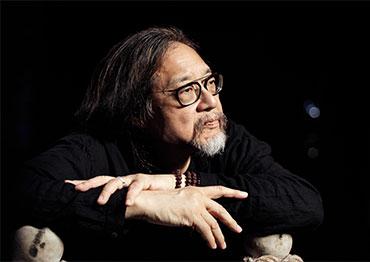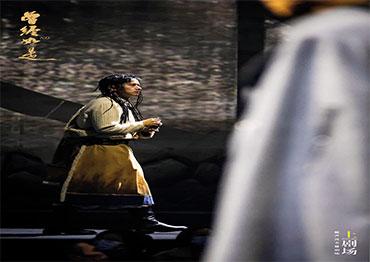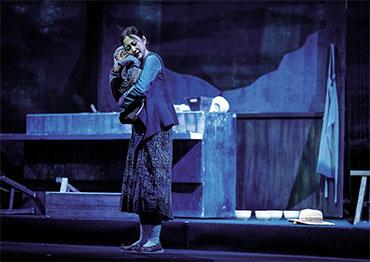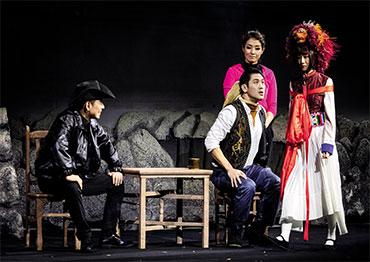Lai’s father was a diplomat for the Republic of China (1911-1949) in the US. Born in 1954, Lai was a teenager during the counterculture movement of the late 1960s.
“I was born in Washington, DC and moved to Seattle when I was 7, then to Taipei at 12, and back to California at 24... I was always on the go,” Lai said in an interview with The Beijing News in September 2019. “I call myself a ‘cosmopolitan.’ Ninety percent of my works are set in China, but the way I write is not like other Chinese creators,” he said.
After moving to Taipei with his family in 1966, the 12-year-old experienced cultural shock. Taiwan was under martial law (1949 to 1987) imposed by the Nationalist government. During the period, known as “The White Terror,” media and speech were tightly controlled. Literature, music and art were strictly censored.
In school, Lai had trouble understanding most of his classes, except English. Several years later, his father suddenly died after an illness.
Feeling lost, the teen sought comfort in the rock music and Marvel comics he loved. He befriended lots of music fans. Many lived in Juancun Village, a community of provisional housing for Nationalist army soldiers and their descendants who retreated from the Chinese mainland during the 20th century. Most of Lai’s friends were the children of mainlanders.
With the economic rise and liberalization of the late 1970s, Taiwan witnessed a renaissance in pop culture driven by talented second-generation mainlanders. Lai was among them.
In 1973, Lai, then a 19-year-old English-language major at Fu Jen Catholic University, formed the rock group North Country Street Band. They regularly performed at the iconic Idea café, playing originals and covering Bob Dylan and The Beatles.
Other performers at Idea café included Yang Hsien and Ara Kimbo – leading figures of the Campus Folk Song Movement (1978-1987), an influential cultural movement in Taiwan that promoted the development of original Chinese songs.
Living in Taiwan helped Lai get in touch with his Chinese roots, while his father’s lessons on traditional Chinese literature and calligraphy gave him a sense of East Asian aesthetics.
Lai attended UC Berkeley for five years. His doctoral dissertation, “Oriental Crosscurrents in Modern Western Theatre,” focuses on Asian culture in modern Western theater. In it he explored examples of how European playwrights misappropriated East Asian theater, traditions and philosophy.
After he returned to Taiwan in 1983, Li founded his own troupe, Performance Workshop. His own experiences, the stories of friends and the histories they witnessed directly inspired Lai’s work.
In 1985, Lai staged The Night We Became Crosstalk Comedians, which he co-wrote with writer-actor Lee Kuo-hsiu (Endless Nights in Aurora) and actor Lee Lichun (The Golden Eyes). They had pioneered the “crosstalk play,” a form that integrates modern theater with crosstalk (xiangsheng), a traditional performance likened to stand-up comedy. Showing the past and present of Taiwanese people in an innovative form, the play was an unexpected hit and proved a milestone in the development of modern theater in Taiwan.
The following year, Lai debuted Secret Love In Peach Blossom Land. His play tells about two theater troupes each rehearsing a different play – the modern tragedy Secret Love and costume comedy drama Peach Blossom Land. Because of the theater’s tight schedule, the two troupes have to rehearse simultaneously on one stage. The result is a weaving of past and present, tragedy and comedy, time and space, drama and reality.
In 2008, Lai and Wang Wei-chung, a celebrated TV producer, created The Village, a play based on real stories from mainlanders of different backgrounds living in Juancun Village in the 1950s and the 1960s.
“My multi-cultural background made me the ‘other’ among mainlanders in Taiwan. Being the ‘other’ means that I can resonate with people around me, but also detach myself to examine people and things from a distance,” Lai told NewsChina.

 Old Version
Old Version



